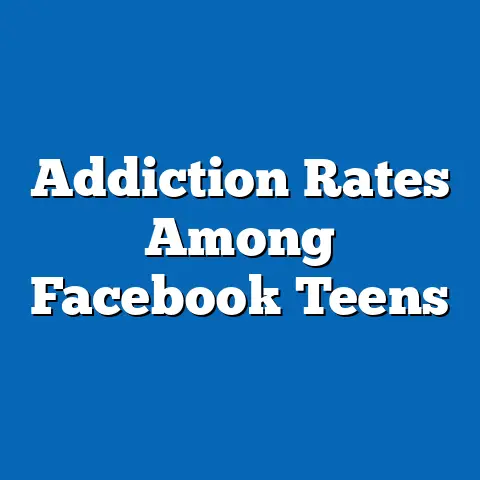Demographics of Facebook Marketplace Car Buyers
In the digital age, the way consumers purchase vehicles has undergone a dramatic transformation, with platforms like Facebook Marketplace emerging as significant players in the used car market.
Launched in 2016, Facebook Marketplace quickly became a go-to platform for peer-to-peer transactions, offering an accessible, user-friendly interface for buying and selling goods, including automobiles.
This article delves into the demographics of Facebook Marketplace car buyers, exploring how generational trends, economic factors, and societal shifts shape their behaviors and preferences.
The ease of change in car buying through digital platforms like Facebook Marketplace reflects broader trends in consumer behavior, driven by technological advancements and evolving social norms.
This shift has not only redefined how individuals approach major purchases but also highlights the intersection of generational characteristics and digital adoption.
By analyzing the demographics of these buyers, we can uncover critical insights into their defining traits, historical influences, and the broader implications for the automotive industry and society at large.
Section 1: The Ease of Change in Car Buying Through Digital Platforms
The transition from traditional car buying methods—such as visiting dealerships or relying on classified ads—to digital marketplaces represents a profound shift in consumer behavior.
Facebook Marketplace has played a pivotal role in this change by offering a platform that prioritizes convenience, accessibility, and community trust.
Unlike traditional methods, which often involve lengthy negotiations and physical visits, Marketplace allows users to browse listings, communicate with sellers, and even arrange test drives with just a few clicks.
This ease of change is underpinned by several key factors.
First, the platform leverages Facebook’s vast user base—over 2.9 billion monthly active users as of 2023 (Statista, 2023)—to create a sense of familiarity and trust among buyers and sellers.
Second, its integration with social profiles enables a level of transparency not always present in anonymous online marketplaces, as users can often see mutual connections or reviews of sellers.
The societal implications of this shift are significant.
Digital car buying reduces geographical barriers, allowing buyers in rural or underserved areas to access a wider range of vehicles without the need to travel.
Additionally, it democratizes the car buying process by empowering individuals to negotiate directly with sellers, often bypassing the higher costs associated with dealership markups.
However, this change also raises concerns about fraud, safety, and the lack of formal oversight, which can disproportionately affect less tech-savvy or vulnerable demographics.
Section 2: Defining Characteristics of Facebook Marketplace Car Buyers
Understanding the demographics of Facebook Marketplace car buyers requires a nuanced look at their defining characteristics, which are shaped by generational identities, economic realities, and technological proficiency.
While the platform attracts users across age groups, research suggests that certain generations dominate the car buying space due to their life stages, financial needs, and digital comfort levels.
Generational Breakdown
Millennials (Born 1981–1996): Millennials, often aged between 27 and 42 in 2023, are a dominant demographic on Facebook Marketplace for car purchases.
As digital natives who came of age during the internet boom, they are highly comfortable navigating online platforms.
Many Millennials are in life stages where they require affordable transportation for growing families or career mobility, making the cost-effective options on Marketplace particularly appealing.Generation X (Born 1965–1980): Gen Xers, aged 43 to 58, also represent a significant portion of car buyers on the platform.
While not as inherently tech-savvy as Millennials, many in this cohort have adapted to digital tools over time.
Gen X buyers often seek reliable, budget-friendly vehicles for family needs or as secondary cars, valuing the direct communication and negotiation opportunities Marketplace offers.Generation Z (Born 1997–2012): The youngest car buyers, primarily those aged 18 to 26, are increasingly active on Facebook Marketplace.
As true digital natives, Gen Z is drawn to the platform’s ease of use and social integration.
However, their limited financial resources often restrict them to lower-priced, older vehicles, and they may prioritize eco-friendly or fuel-efficient options due to heightened environmental awareness.Baby Boomers (Born 1946–1964): While less prevalent, some Baby Boomers, aged 59 to 77, also engage with Marketplace for car purchases.
This group tends to be more cautious with technology and may rely on assistance from younger family members to navigate the platform.
Boomers often look for specific vehicle types, such as classic cars or RVs, reflecting retirement or leisure priorities.
Economic and Social Factors
Beyond generational lines, economic status plays a critical role in shaping the characteristics of Marketplace car buyers.
Many users are drawn to the platform due to its perceived affordability compared to dealerships or other online marketplaces like eBay Motors.
A 2021 survey by Consumer Reports found that 68% of used car buyers on peer-to-peer platforms cited cost savings as their primary motivation.
Social factors, such as the desire for community connection, also influence buyer behavior.
Facebook Marketplace’s integration with social networks fosters a sense of trust and accountability, as buyers can often see mutual friends or seller ratings.
This social element differentiates it from other platforms and appeals to users who value personal interactions in their transactions.
Section 3: Historical Context Shaping Buyer Demographics
The demographics of Facebook Marketplace car buyers are deeply rooted in historical events and societal trends that have shaped each generation’s worldview and economic circumstances.
Understanding these influences provides critical context for their purchasing behaviors.
Baby Boomers: Post-War Prosperity and Technological Adaptation
Baby Boomers grew up in an era of post-World War II economic growth, where car ownership became a symbol of the American Dream.
However, their later adoption of technology means they often approach digital marketplaces with caution.
For those active on Marketplace, the platform represents a modern extension of traditional classified ads, and their historical preference for in-person transactions may lead to a higher emphasis on test drives and face-to-face negotiations.
Generation X: Economic Instability and Pragmatism
Gen Xers came of age during periods of economic uncertainty, including the recessions of the early 1980s and 1990s.
This fostered a pragmatic approach to spending, with many prioritizing value over brand loyalty in car purchases.
Their historical context also includes the early days of the internet, positioning them as a bridge between analog and digital consumer behaviors on platforms like Marketplace.
Millennials: Recession and Digital Revolution
Millennials entered adulthood during the 2008 financial crisis, which delayed traditional milestones like homeownership and car buying for many.
This economic backdrop, combined with their status as the first generation to grow up with widespread internet access, makes them particularly receptive to cost-effective, tech-driven solutions like Facebook Marketplace.
Their historical context also includes a shift toward sharing economies, influencing a preference for peer-to-peer transactions over corporate intermediaries.
Generation Z: Climate Awareness and Social Media Dominance
Gen Z’s formative years have been marked by heightened awareness of climate change, economic inequality, and the ubiquity of social media.
These historical influences shape their car buying preferences, with many prioritizing sustainability and affordability.
Their lifelong immersion in digital platforms also makes Marketplace a natural choice for transactions, as it aligns with their social media-centric lifestyles.
Section 4: Societal Implications of Facebook Marketplace Car Buying Trends
The rise of Facebook Marketplace as a hub for car buying has far-reaching implications for society, the economy, and the automotive industry.
These trends reflect broader shifts in consumer behavior, technological adoption, and economic priorities.
Economic Democratization and Accessibility
One of the most significant societal impacts is the democratization of car buying.
By facilitating direct transactions between individuals, Marketplace reduces the financial barriers associated with dealership purchases, making car ownership more accessible to lower-income or younger buyers.
A 2022 study by the Pew Research Center found that 45% of Americans under 30 have purchased a major item, including vehicles, through online marketplaces, highlighting the platform’s role in broadening access.
However, this accessibility comes with challenges.
The lack of formal oversight on Marketplace can lead to scams or unsafe transactions, disproportionately affecting less experienced buyers.
Additionally, the digital divide—disparities in access to technology or internet literacy—may exclude certain demographics, such as older adults or rural populations, from fully participating in this new car buying landscape.
Environmental Considerations
The environmental impact of Marketplace car buying is a double-edged sword.
On one hand, the platform promotes the reuse of vehicles, extending the lifecycle of cars that might otherwise be scrapped.
On the other hand, many buyers, particularly younger generations like Gen Z, are purchasing older, less fuel-efficient vehicles due to budget constraints, potentially contributing to higher emissions.
This tension reflects broader societal debates about sustainability in the automotive sector.
Policymakers and industry leaders may need to address these trends by incentivizing the sale of eco-friendly vehicles on peer-to-peer platforms or educating buyers about the long-term costs of older models.
Cultural Shifts in Trust and Community
Culturally, Facebook Marketplace fosters a return to community-based transactions in a digital format.
Unlike impersonal e-commerce platforms, Marketplace’s social integration allows buyers to connect with sellers in their local areas, often building trust through shared connections or transparent profiles.
This shift mirrors historical bartering systems but adapts them to the digital age, reflecting a societal desire for authenticity and personal interaction in an increasingly automated world.
However, this reliance on social trust also raises privacy concerns.
Buyers and sellers must share personal information to facilitate transactions, which can lead to data security risks or exploitation.
As society grapples with balancing connectivity and privacy, platforms like Marketplace will need to evolve to address these cultural concerns.
Section 5: Generational Comparisons and Nuances
While generational categories provide a useful framework for understanding Facebook Marketplace car buyers, it’s essential to avoid oversimplification and acknowledge the diversity within each group.
Comparing and contrasting generational behaviors reveals both shared trends and distinct differences.
Technological Comfort and Adoption
Millennials and Gen Z stand out for their high comfort levels with digital tools, often using Marketplace as their first port of call for car purchases.
In contrast, Gen X and Baby Boomers may approach the platform with more hesitation, relying on traditional methods as a fallback.
However, within each generation, there are outliers—tech-savvy Boomers who embrace digital platforms or younger users who prefer in-person transactions due to distrust of online systems.
Financial Priorities and Life Stages
Financial constraints unite many Marketplace buyers across generations, but their priorities differ based on life stage.
Millennials and Gen Z often prioritize affordability and immediate needs, such as commuting to work or school, while Gen X may focus on family-friendly vehicles.
Baby Boomers, on the other hand, might seek vehicles for leisure or nostalgia, such as vintage cars, reflecting a shift toward discretionary spending in retirement.
Attitudes Toward Sustainability
Generational attitudes toward environmental impact also vary.
Gen Z is notably more vocal about sustainability, with many expressing a preference for hybrid or electric vehicles when budget allows.
Millennials share some of these concerns but are often constrained by financial realities, while older generations like Gen X and Boomers may place less emphasis on eco-friendliness due to historical norms around car ownership.
These comparisons highlight the importance of viewing generational trends as starting points rather than rigid stereotypes.
Individual circumstances—such as income, location, and personal values—often play a larger role in shaping buyer behavior than age alone.
Section 6: Technological, Economic, and Cultural Influences
The demographics of Facebook Marketplace car buyers are influenced by a complex interplay of technological, economic, and cultural factors.
These elements not only shape who uses the platform but also how they engage with it.
Technological Factors
The rapid advancement of mobile technology has been a key driver of Marketplace’s popularity.
With over 90% of Facebook users accessing the platform via mobile devices (Statista, 2023), car buyers can browse listings, message sellers, and arrange purchases on the go.
This convenience appeals particularly to younger generations, who prioritize speed and accessibility in their transactions.
However, technological barriers remain for some demographics.
Older users or those in areas with limited internet access may struggle to navigate the platform, highlighting the digital divide as a persistent challenge in the democratization of car buying.
Economic Factors
Economic conditions heavily influence the appeal of Marketplace for car purchases.
In an era of rising inflation and stagnant wages—particularly post-COVID-19—many buyers turn to peer-to-peer platforms to avoid dealership premiums.
The 2023 economic climate, marked by high interest rates on auto loans, further incentivizes cost-saving measures, making Marketplace a viable option for budget-conscious consumers across generations.
Cultural Factors
Culturally, the shift toward individualism and distrust of large institutions has fueled the popularity of peer-to-peer platforms.
Many buyers, especially younger ones, value the autonomy and transparency of dealing directly with sellers rather than navigating corporate sales tactics.
This cultural trend aligns with broader movements toward localism and community engagement, even in digital spaces.
At the same time, cultural differences within and across generations affect how users approach Marketplace.
For instance, urban buyers may prioritize compact, fuel-efficient cars due to city living constraints, while rural buyers might seek larger vehicles for practical needs, reflecting diverse cultural and regional priorities.
Section 7: Implications for Society, Culture, and the Automotive Industry
The growing influence of Facebook Marketplace on car buying has profound implications across multiple domains, from societal equity to industry innovation.
Societal Equity and Inclusion
Marketplace has the potential to enhance societal equity by making car ownership more accessible to marginalized or economically disadvantaged groups.
However, without addressing the digital divide or implementing safeguards against fraud, the platform risks exacerbating existing inequalities.
Policymakers and tech companies must collaborate to ensure that digital marketplaces are inclusive and safe for all users.
Cultural Norms Around Car Ownership
The cultural perception of car ownership is evolving as peer-to-peer platforms gain traction.
No longer solely a symbol of status or independence, cars are increasingly seen as practical tools, especially among younger generations who value experiences over material possessions.
This shift could redefine societal norms around transportation, with implications for urban planning, public transit, and environmental policy.
Workplace and Economic Impacts
In the workplace, the accessibility of affordable vehicles through Marketplace supports workforce mobility, enabling individuals to commute to jobs that might otherwise be out of reach.
Economically, the platform disrupts traditional automotive sales models, challenging dealerships to adapt by offering competitive pricing or enhanced digital experiences.
This competition could ultimately benefit consumers but may also lead to job losses in traditional sectors if dealerships downsize.
Automotive Industry Adaptation
For the automotive industry, the rise of platforms like Marketplace signals a need for innovation.
Manufacturers and dealers must consider how to engage with peer-to-peer buyers, perhaps by offering certified pre-owned programs or partnering with digital platforms to reach younger demographics.
Additionally, the trend toward older vehicle purchases on Marketplace may slow the adoption of newer, safer, and more sustainable models, prompting industry leaders to address affordability barriers.
Section 8: Forward-Looking Insights and Uncertainties
As Facebook Marketplace continues to shape the car buying landscape, several trends and uncertainties warrant attention.
Looking ahead, the platform’s role in the automotive market will likely grow, driven by increasing digital adoption and economic pressures favoring cost-effective solutions.
Younger generations, particularly Gen Z and the emerging Generation Alpha, will likely dominate future buyer demographics as they enter key life stages for car ownership.
However, uncertainties remain.
Regulatory scrutiny over data privacy and consumer protection could impact how Marketplace operates, potentially introducing stricter guidelines for transactions.
Additionally, economic fluctuations—such as recessions or shifts in interest rates—may alter buyer behavior, pushing more individuals toward or away from peer-to-peer platforms depending on financial stability.
Technological advancements, such as the integration of AI for fraud detection or virtual reality for remote test drives, could further transform the car buying experience on Marketplace.
Yet, these innovations must be balanced against accessibility concerns to avoid alienating less tech-savvy users.
Finally, the societal push for sustainability will likely influence future trends, with buyers increasingly seeking eco-friendly options even within budget constraints.
Whether Marketplace can adapt to promote greener choices—through partnerships with electric vehicle sellers or educational campaigns—remains an open question.
Conclusion
The demographics of Facebook Marketplace car buyers reveal a fascinating intersection of generational identities, economic realities, and technological advancements.
From tech-savvy Millennials and Gen Z to pragmatic Gen Xers and cautious Baby Boomers, each group brings unique characteristics and priorities to the platform, shaped by historical contexts and societal shifts.
The ease of change facilitated by Marketplace has democratized car buying, offering accessibility and affordability while challenging traditional industry models.
Yet, this transformation is not without complexities.
Issues of trust, safety, and digital inclusion must be addressed to ensure equitable access, while cultural and environmental considerations highlight the broader implications of peer-to-peer car sales.
As we look to the future, the evolving role of platforms like Marketplace will depend on their ability to balance innovation with responsibility, adapting to the diverse needs of buyers across generations.
By understanding these demographic trends and their societal impacts, stakeholders—from policymakers to industry leaders—can better navigate the changing landscape of car buying.
While uncertainties persist, the trajectory of Facebook Marketplace suggests a continued redefinition of how we acquire, perceive, and value automobiles in the digital age.






